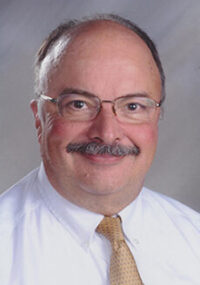When we put our trust in Jesus, we belong to the truth

By Tim Irwin
Solemnity of Our Lord Jesus Christ, King of the Universe/Nov. 25
Daniel 7:13-14; Psalm 93:1,1-2,5; Revelation 1:5-8; John 18:33b-37
This Sunday celebrates the Solemnity of Our Lord Jesus Christ, King of the Universe, marking the end of the liturgical year and the second coming of the Lord. Eschatology names the study of the second coming and the New Testament offers three views. Each view offers food for thought in a slightly different context and deserves prayerful consideration.
The oldest view of the second coming appears in the Gospel according to Mark, First Thessalonians, and the Revelation to John among others. This view warns that the end is near, so the wise will embrace Christ and accept his invitation to the Kingdom of God sooner rather than later. Over the past two millennia, hundreds of Christians have predicted Jesus’ return. The relevance of this view lies not in naming the date, but in the fact that sooner or later we will each experience death. So, in that sense the end is only a lifetime away for any of us.
The Gospels according to Matthew and Luke present a second view — delayed eschatology. In Matthew, the delay occurs so that the apostles can teach and baptize. For Luke, it is so that the apostles can be witnesses of the Risen Christ even unto the ends of the earth. Here again, we can find a connection.
We will leave others behind when we cross over into eternity. Hopefully, they will be better for having known us. Perhaps, we have in some small measure carried on the proclamation of the apostles in our words and actions and shared Our Lord’s invitation to the Kingdom of God.
WHAT IS TRUTH?
The Gospel according to John offers the third view — realized eschatology. John calls us to focus on the first coming of Christ. The bread of life discourse in chapter six of John’s Gospel reveals how we can experience the first coming of the Risen Christ through the Holy Eucharist. In chapter 11, Jesus visits the sisters of the recently deceased Lazarus and explains the implication of realized eschatology — his first coming.
Martha says that had Jesus arrived sooner, her brother Lazarus would not have died. She then professes her faith in the resurrection of the dead on the last day. Jesus counters, “I am the resurrection and the life; whoever believes in me, even if he dies, will live, and everyone who lives and believes in me will never die. Do you believe this?” Martha answered, “Yes, Lord. I have come to believe that you are the Messiah, the Son of God, the one who is coming into the world.” In other words, Jesus will always be coming into the world under the appearance of bread and wine.
This week’s Gospel presents the antithesis of Martha — Pontius Pilate, an archetype for the contemporary disbeliever. He just doesn’t know what to make of Jesus, accused by the High Priest of claiming to be the king of the Jews. Jesus is clearly no king as Pilate understands it and he presses Jesus for an answer: “Are you the King of the Jews?”
Jesus tells Pilate that his kingdom is not of this world, which is why his followers have not rallied to his defense. Pilate responds, “Then you are a king?” Jesus replies, “You say I am a king. . . . For this I was born and for this I came into the world, to testify to the truth. Everyone who belongs to the truth listens to my voice.” Pilate responds, “What is truth?”
Martha answered Pilate’s question. She placed her faith in Jesus. She belongs to the truth as do we, especially at the Holy Mass where we receive the Bread of Life — Jesus who is coming into the world.
—
Tim Irwin teaches theology and philosophy at Notre Dame High School in Peoria. He is a member of Blessed Sacrament Parish in Morton.





